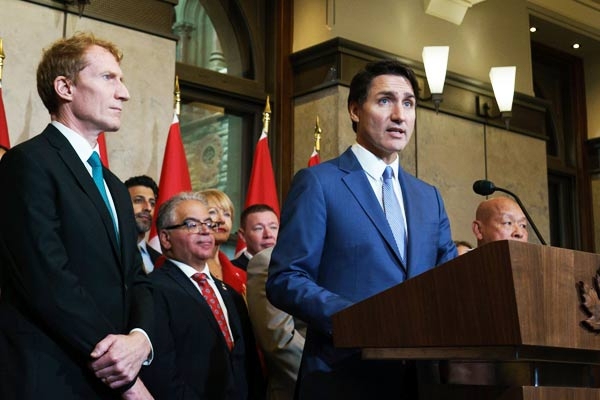
(Image source from: x.com/JustinTrudeau)
Canada has announced a significant reduction in its immigration targets, a major shift for a country known for its welcoming approach to immigrants, including economic migrants seeking better opportunities. The country's population saw a substantial 3.2% increase from 2023 to 2024, the highest annual rise since 1957, now reaching 41 million. This surge was largely driven by an unprecedented wave of new arrivals. Prime Minister Justin Trudeau stated that while the influx helped boost the Canadian economy's recovery from the Covid-19 disruptions, the time has come to make "adjustments." Trudeau said Canada needs to stabilize its population growth to allow the government to catch up and make necessary investments in healthcare, housing, and social services to accommodate future population growth.
The government plans to reduce the number of new permanent residents allowed to settle in Canada in the coming years, from 500,000 in 2025-2026 to 395,000 in 2025 and 380,000 in 2026. The target for 2027 is set at 365,000. The Immigration Minister called this a unique plan to control population growth in Canada. According to the 2021 census, 23% of the population was born abroad, with increasing numbers coming from Asia, the Middle East, and Africa. A recent survey found that a majority of Canadians believe there is too much immigration, a significant increase from 2023. Additionally, half of Canadians say immigration is harming the country.
Immigration is primarily associated with concerns about a perceived shortage of critical resources, particularly affordable housing. Miller specifically emphasized the new plan's efforts to address what many Canadians describe as a housing crisis. He anticipated that reducing immigration targets would address the housing supply gap, leading to a decrease of 670,000 in the number of homes Canada needs to construct by 2027.







